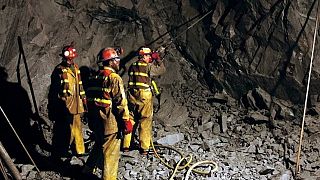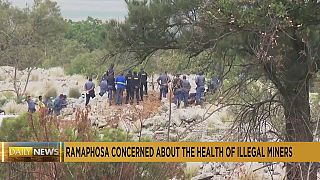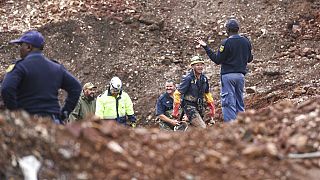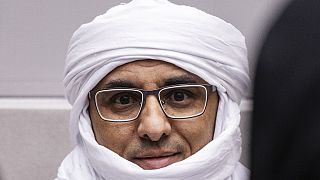South Africa
Several sites in South Africa associated with the country's long and bloody anti-apartheid struggle have recently been added to the United Nations Educational, Scientific and Cultural Organization's (UNESCO) World Heritage List.
The system of institutionalized racial segregation came into being in South Africa following the Second World War. It was finally eradicated in the early 1990s - largely due to the sacrifices of activists like Nelson Mandela, who went on to serve as the country's first post-apartheid president.
Newly nominated to UNESCO as "Human Rights, Liberation Struggle and Reconciliation: Nelson Mandela Legacy Sites", the serial property consists of fourteen component parts scattered around the country, all related to South Africa's political history in the 20th century.
These include the Union Buildings, which are now the official seat of the South African government and house the offices of the President. Over the years, they have hosted many important events, such as the inauguration of South Africa's first democratically elected president in 1994. A nine-meter-high bronze statue of Nelson Mandela has stood at the foot of the buildings ever since it was unveiled a day after his funeral in Qunu - a village near the late president's birthplace - in late 2013.
Another one is Liliesleaf in Johannesburg - a huge icon of the struggle. This was a secret home and meeting place for political activists going back almost to the movement's foundation. In 1963, the police raided the farm and captured ten leaders, including the young Mandela. A year later, at the infamous Rivonia Trial, they received life sentences for sabotage. Today, Liliesleaf is home to exhibitions that tell the story of the journey to democracy in South Africa.
Tokyo Sexwale, an anti-apartheid activist who was once imprisoned alongside Mandela, now sits on Liliesleaf's board of directors. In his view, adding the site to the heritage list symbolizes global recognition of South Africa's long journey to freedom.
"It's a top recognition for UNESCO to do that, but for us, it's for South Africa, as I said earlier. It is for human rights, it is for social justice, it is for recognition of what democracy stood up for. It was for our own national self-determination, so that we take the affairs of our nation in our own hands. It is significant, therefore, for the UN, UNESCO, in this case, to give us recognition of what happened here," said Sexwale.
Liliesleaf is one of the most popular sites for tourists who wish to learn more about apartheid and the struggle to end it.
"This tells the story of the resistance movement, which was the most important part, which led to the freedom of this country. And this is why I like coming to this venue, because it tells that story and the people involved in that story," said Merle Jacobs, a tour guide.
"Most people who come here want to find out where Nelson Mandela was in hiding, where did they have all those secret meetings, what kind of life was he living while he was here," said another tour guide, Tracey Rapelego.
"I'm American, and I'm very interested in the history of civil rights in the United States, and I think as a global movement of civil rights, this is so important. And it's been very interesting to hear the differences of the experience here and the experience of the United States. It's eye-opening. It's been terrific," said a tourist, Anita Lichtenberg.
Other South African sites that have been recognized as UNESCO World Heritage sites include Constitutional Hill which houses the country's apex court, Sharpeville Heritage Precinct and Walter Sisulu Square.
South African Cyril Ramaphosa has welcomed the inscription of these sites and has asked the public to help safeguard them.












02:17
Akazehe: a unique Burundi greeting risks disappearing
Go to video
South Africa's 1st democratic Labour Minister, former Reserve Bank Governor Tito Mboweni has died
01:53
Crowds protest in Cape Town for an end to Israel-Gaza war, as conflict nears second year
01:35
South Africa receives remains of 42 freedom fighters who died while exiled
01:23
Ramaphosa calls on world's leaders to take decisive action to end Palestinian suffering
Go to video
Whitney Houston's epic 1994 performance in South Africa to hit theaters as a concert film